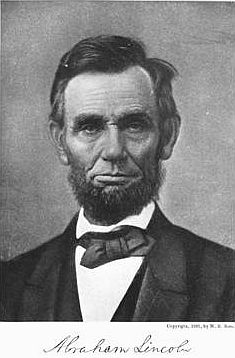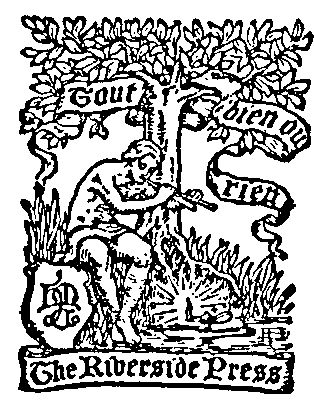Click for list of illustrations.
EXPANSION AND
CONFLICT
BY
WILLIAM E. DODD
PROFESSOR OF AMERICAN HISTORY
UNIVERSITY OF CHICAGO
HOUGHTON MIFFLIN COMPANY
BOSTON NEW YORK CHICAGO
The Riverside Press Cambridge
COPYRIGHT, 1915, BY WILLIAM E. DODD
ALL RIGHTS RESERVED
The Riverside Press
CAMBRIDGE · MASSACHUSETTS
U. S. A.
PREFACE
The purpose of this volume is to show the actionand reaction of the most important social, economic,political, and personal forces that have entered intothe make-up of the United States as a nation. Theprimary assumption of the author is that the peopleof this country did not compose a nation until afterthe close of the Civil War in 1865. Of scarcely lessimportance is the fact that the decisive motive behindthe different groups in Congress at every greatcrisis of the period under discussion was sectionaladvantage or even sectional aggrandizement. If Websterceased to be a particularist after 1824 and becamea nationalist before 1830, it was because theinterests of New England had undergone a similarchange; or, if Calhoun deserted about the sametime the cause of nationalism and became the mostardent of sectionalists, it was also because the interestsof his constituents, the cotton and tobaccoplanters of the South, had become identified withparticularism, that is, States rights.
And corollary to these assumptions is the furtherfact that public men usually determine what line ofprocedure is best for their constituents, or for whatare supposed to be the interests of those constituents,and then seek for “powers” or clauses in State orFederal Constitutions which justify the predeterminedcourse. This being, as a rule, true, the busi[Pg vi]nessof the historian is to understand the influenceswhich led to the first, not the second, decision ofthe Representative or Senator or President or evenJustice of the Supreme Court. Hence long-windedspeeches or tortuous decisions of courts have notbeen studied so closely as the statistics of the cottonor tobacco crops, the reports of manufacturers,and the conditions of the frontier, which determinedmore of the votes of members of Congress than themost eloquent persuasion of great orators.
Thus the following pages utterly fail of their purposeif they do not picture the background of congressionaland sectional conflicts during the periodfrom Andrew Jackson to Abraham Lincoln. But, tobe sure, in so brief a book all the contributing elementsof the growing national life cannot be fullydescribed or even be mentioned. Still, it is the hopeof the author that all the greater subjects have beentreated. What has been omitted was omitted in orderto devote more space to what seemed to be more important,not in order to suppress what some may considerto be of primary significance. Three hundredshort pages for the story of the great conflict whichraged from 1828 to 1865 do not offer much latitudefor explanations and diversions along the way. Noris it possible for a

